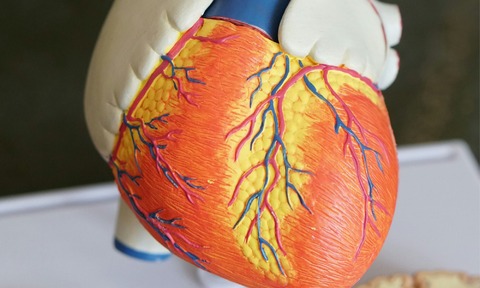Novel duo offer early diagnosis for four cardiac conditions
1 Sep 2025

Two technologies developed in UK institutions and capable of addressing four heart conditions have been unveiled at the European Society of Cardiology’s annual congress in Madrid.
The British Heart Foundation-funded projects include a cheek swab test for arrhythmogenic cardiomyopathy (ACM) and an AI stethoscope used for early diagnosis of heart failure, atrial fibrillation and heart valve disease.
ACM is responsible for more than 10 per cent of sudden cardiac deaths in children. Usually genetic, it is caused by abnormalities in the proteins between heart cells.
Heart failure affects more than a million people in the UK but in nearly three quarters of cases, is only diagnosed after sufferers are taken to hospital.
Researchers at City St George’s, the University of London, and Great Ormond Street Hospital adapted an existing cheek swab test being used to monitor children already identified with ACM.
As abnormalities in the affected proteins can also be seen in the lining of the cheeks, they investigated whether the swab could reveal whether someone who had not had recourse to heart biopsies could be identified as possibly having ACM.
A total of 51 children and young people, aged three months to 18 years old with a known genetic risk of ACM, were swabbed every three to six months.
Ten went on to develop ACM, and eight showed abnormalities in a cheek swab before any changes were detected from other medical tests. Within another group of 21 children with suspected early signs of ACM but no genetic cause identified, five revealed abnormalities.
The cheek swabs revealed changes between 1.5 and five years before the children were diagnosed with ACM.
Currently, ACM diagnosis must be confirmed using a range of tests including an ECG, echocardiogram, cardiac MRI and genetic testing; a cheek swab could help diagnose children earlier.
However, the study which analysed swabs over more than seven years, missed ACM in two out of 10 children with a genetic risk who went on to develop the condition. The researchers cautioned this could reflect changes in the heart at an early stage of the condition.
The second technology unveiled at the ESC conference, an AI-enabled stethoscope developed by researchers at Imperial College London and Imperial College Healthcare NHS Trust, was tested at more than 200 GP surgeries.
Testing showed those examined using an AI stethoscope were:
- Twice as likely to be diagnosed with heart failure, compared to similar patients who were not examined using the technology.
- Around 3.5 times more likely to be diagnosed with atrial fibrillation
- Almost twice as likely to receive a diagnosis of heart valve disease
Dr Patrik Bächtiger, from Imperial College London’s National Heart and Lung Institute and Imperial College Healthcare NHS Trust, said: “The design of the stethoscope has been unchanged for 200 years - until now.
"So, it is incredible that a smart stethoscope can be used for a 15-second examination, and then AI can quickly deliver a test result indicating whether someone has heart failure, atrial fibrillation or heart valve disease.”
Dr Sonya Babu-Narayan, clinical director at the British Heart Foundation and consultant cardiologist, added that such earlier diagnosis would ensure people could access treatment needed to help them live well for longer.
Patients who showed signs of breathlessness, fatigue or swelling of the lower legs and/or feet (symptoms associated with heart failure) were examined with the AI stethoscope.
If found to be high risk, they went on to have their diagnosis confirmed with a blood test for the hormone BNP and a heart scan.
The stethoscope project involved 12,725 patients in 96 British GP surgeries examined and compared to patients from another 109 surgeries in the area, where AI stethoscopes were not used.
However, 70 per cent of GP surgeries given smart stethoscopes in the study stopped using them or used them infrequently after 12 months, indicating failures to integrate the technology, said researchers.
Also, two-thirds of people identified by the AI stethoscope as having suspected heart failure were revealed not to have it after being given a further blood test or a heart scan.
The TRICORDER study was funded by the British Heart Foundation, the National Institute for Health and Care Research (NIHR) and Imperial Health Charity. Research was supported by the NIHR Imperial Biomedical Research Centre.

